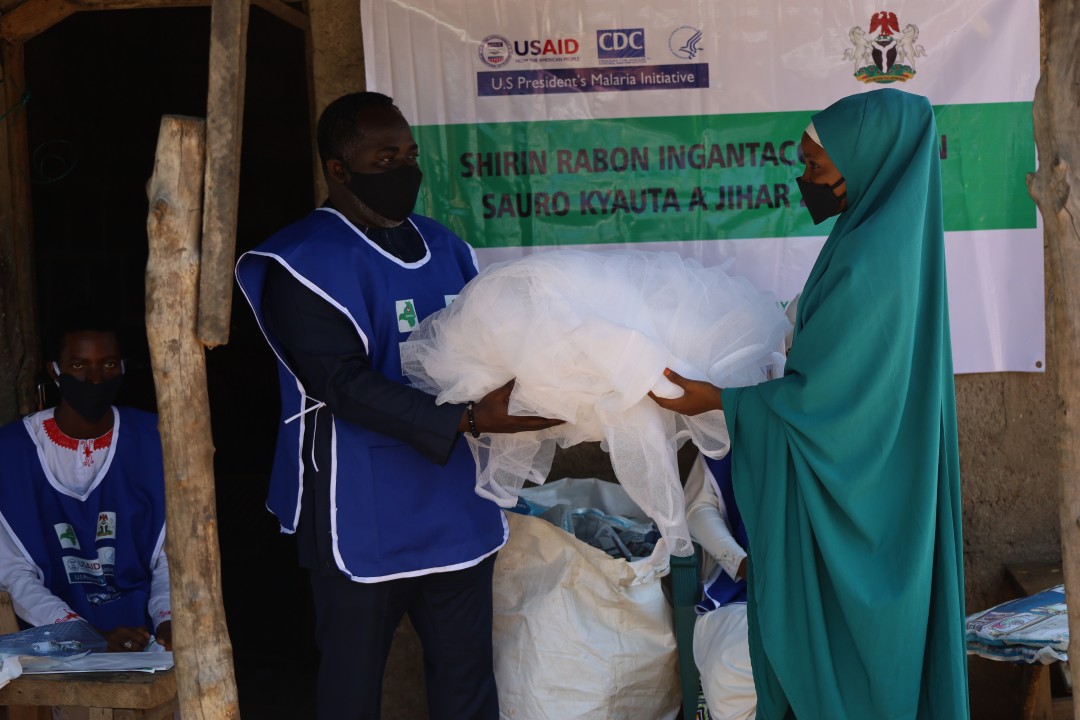
Integrated malaria prevention intervention in Nigeria – the first of its kind
It was a thing of pride and an accomplishment to be part of the first ever integrated SMC/ITN distribution campaign anywhere in the malaria-endemic world. It happened in Zamfara State, Nigeria, and with the novelty of it came opportunities for teachable moments and new learnings. SMC stands for Seasonal Malaria Chemoprevention through the administration of malaria preventive medicines to children 3 – 59 months old during the peak of the rainy season. This is an essential intervention particularly in the Sahel region where this period is estimated to be about 4 months in the year. ITN on the other hand is the popular Insecticide-Treated Net that offers protection from mosquito bites when used properly. Both methods are proven, tested and trusted interventions for the prevention of malaria and as such a lot is invested in these intervention approaches because of the promise they hold in the fight against malaria.
The year 2020 has been a very unusual one and when COVID-19 reared its raging ugly head, the gains and progress so far made in the fight against malaria globally came under serious threat.
How do we implement these life-saving interventions that hitherto had been done with full and direct contact with beneficiaries, without spreading the COVID-19 virus in the process?
It became apparent that the pandemic was potentially going to “roll back years of progress” by making it difficult for the Roll Back Malaria (RBM) partners to “roll back malaria”. Fortuitously, it was time again for the Sahel region Zamfara State to have an ITN distribution campaign and the State would have been the first victim of the impact of the pandemic on health interventions. Thankfully, as a result of the resilience and determination of all the partners and stakeholders involved, the situation was flipped to make the State an exemplar of what is achievable even in the context of the COVID-19 pandemic.
With the Government of Zamfara State taking the lead and the massive support from the United States Government and implementing partners, the seemingly impossible was pulled off. It was quite daunting that in a year as unpredictable, precarious, and complicated as the year 2020, households would be visited to administer SMC medicines to all eligible children and to register beneficiaries for the collection of ITNs concurrently.
It took the concertedness and consistency of efforts by the implementing partners, high level advocacy by PMI/USAID, intricate planning, and the supportive leadership of the State Government to soldier on to ensure that malaria did not win in Zamfara State in 2020.
The results were as rewarding economically as they were beneficial to the health and well-being of the people of Zamfara State.
At the end of the integrated exercise, over 1 million eligible children under the age of 5 received the SMC medicine in the first month of administration and were on the path of protection from malaria until the next rainy season and about 3 million ITNs were received by all registered households in Zamfara State. These feats were achieved while saving cost and operating in the guidance of safely implementing such interventions in the context of COVID-19. This accomplishment is better appreciated when we look at the statistics on the burden of malaria. Nigeria accounts for more than 25% of all malaria cases worldwide and sadly, children aged under 5 years are the most vulnerable group affected by the disease. In 2018, children accounted for 67% of all malaria deaths worldwide (World Malaria Report 2019). When we do the math for Nigeria, we begin to see the essence of carrying on with interventions that target the health and well-being of under-5 children such as the SMC medicines and ITN distribution, even in the face of the COVID-19 pandemic.
#stillwemove #weneverfreeze
In the final analysis, the gains and mileage were huge. Ultimately, it was an all-round, win-win situation for the donor, the RBM partners and the Government and people of Zamfara State.
Lives saved, costs saved, lessons identified and learnt. Mission accomplished.
It is heartwarming to know that, in Nigeria, because of such enduring partnerships and the can-do spirit of the people, estimated deaths due to malaria reduced by over 44% between 2010 and 2017 (WHO global health observatory data repository, 2019). This is why we cannot afford to miss a step but continue to do what we need to do to fight malaria to the finish.
#malaria #zeromalariastartswithme #endmalarianow #stillwemove #weneverfreeze

Technical Director, Malaria at Management Sciences for Health
3ySuch an amazing achievement Idowu Akanmu. Well done. I'm sure the detailed lessons learnt will be available to the national malaria program so other implementing partners can learn. Kudos once again
Monitoring, Evaluation, Research and Learning Lead @ DAI | USAID| Sexual and Reproductive Health | Adolescent Health | Public Health Nutrition
3yWell Done Egbon.....